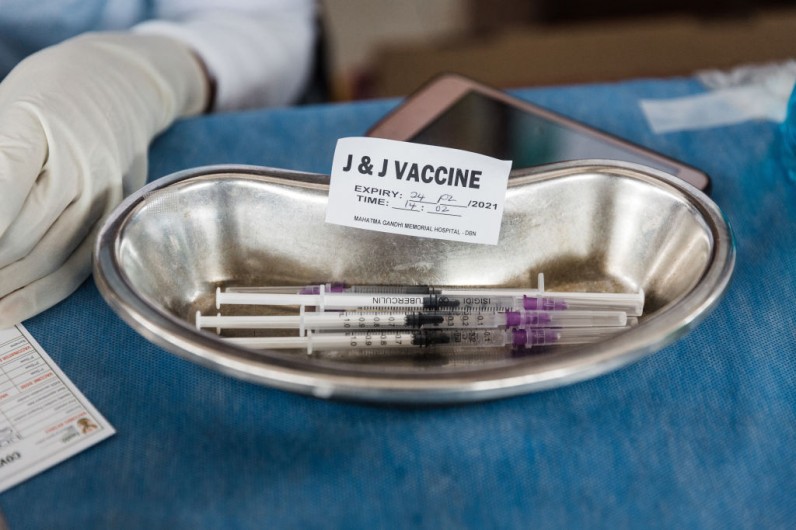
Uncommon, yet potentially fatal blood clots associated with the Johnson & Johnson (J&J) and AstraZeneca COVID-19 vaccines have been linked to an autoimmune response that may be more likely to occur in certain individuals.
Potential Blood Clot Risk Identified in J&J and AstraZeneca COVID-19 Vaccine Shots
Scientists recently published a letter in the New England Journal of Medicine, highlighting a potential concern with adenovirus-based vaccines.
They found that these vaccines, such as the J&J and AstraZeneca shots, may have a component that can potentially cause blood clots in individuals who are genetically susceptible, Bloomberg reported.
The number of people who may be susceptible to the complication remains unknown, according to Professor Tom Gordon, the head of immunology at Flinders University in South Australia. His molecular sleuthing has led to this finding.
In an interview, he described the immune reaction associated with the shot as a "new disease." As medical professionals gain more knowledge about these conditions, they will likely document and report on more cases.
Australia Sees Rare Blood Clotting with AstraZeneca COVID-19 Vaccine
According to the Yale School of Medicine, there have been 60 reported cases of a clotting disorder and nine deaths among over 18 million individuals who received the single-dose J&J vaccine.
In 2021, several countries, including Denmark and Norway, decided to withdraw or restrict the use of the AstraZeneca vaccine due to a few cases of clot-related deaths.
Strait Times reported that the adverse event was observed in approximately two to three individuals per 100,000 who received the AstraZeneca vaccine under the age of 60 in Australia. However, this vaccine has not been accessible in the country since March 2023.
In March 2024, the European Commission decided to withdraw the marketing authorisation for the immunization.







Join the Conversation